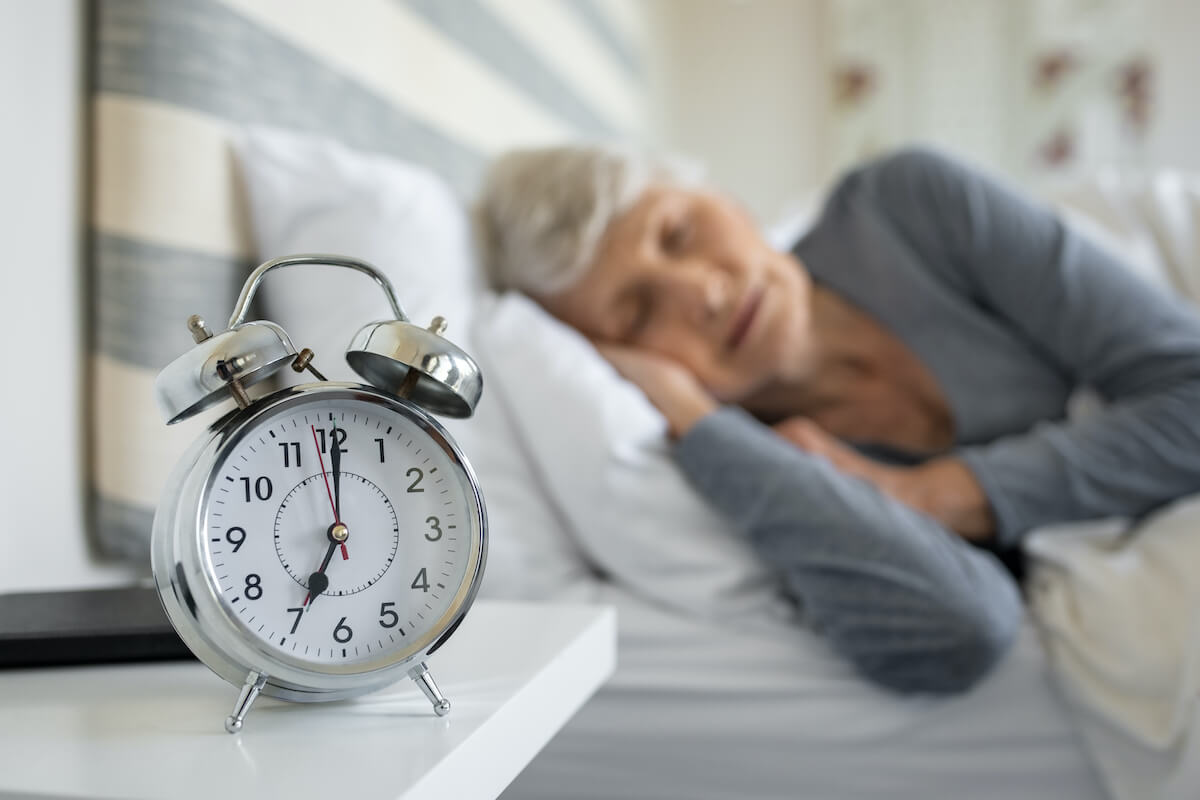December 20, 2018

You may notice that as you get older, your sleep patterns have changed. This is largely due to a natural decrease in melatonin, a hormone which promotes and regulates sleep patterns. Because of this, many seniors often report they are tired earlier in the evening and find themselves waking up earlier in the morning.
Waking up in the middle of the night also becomes more common as we age, as does insomnia, i.e. having trouble both falling and staying asleep. According to the National Institute of Health nearly 50% of all seniors experience insomnia.
However, natural changes in the body aren’t the only reason you may not be getting your recommended 7 to 9 hours of sleep a night. Certain medications such as antidepressants and beta-blockers can contribute to insomnia. Health problems such as diabetes, congestive heart failure, kidney disease and prostate issues in men can also affect your quality of sleep, as can common conditions such as sleep apnea, restless leg syndrome (RLS) and periodic limb movement disorder (PLMD).
According to the Alzheimer’s Association, changes in sleep patterns, such as sleeping more during the day and having difficulty sleeping at night are also common in those with Alzheimer’s. It’s important to note that these changes are generally most prevalent in the later stages of the disease, however some recent studies suggest that poor sleep quality may be an early warning sign of Alzheimer’s disease.
If you notice sleep issues in yourself or a loved one, be sure to speak with your doctor to rule out the potential of any underlying conditions and to learn more about your options for getting a better night’s rest.
Everyone has nights where they toss and turn, but over time, poor sleep can affect seniors both physically and mentally. Here are some key benefits of good sleep:
If you’ve noticed some changes in your sleep habits, there are a number of steps you can take on your own to improve your overall quality of sleep.
Start by establishing a set time for going to bed and waking up each day, even on the weekends. While you may be tempted to sleep in on some days, doing so can make it difficult for your body to create healthy sleep patterns.
Next, while you may be more tired during the day, it’s important to avoid napping longer than 20 minutes at a time. Doing so can affect your ability to fall asleep at night. Instead of taking long naps, work to stay active during the day. Following a regular exercise routine and engaging in stress reducing activities such as yoga can help you sleep better at night.
Finally, make sure your bedroom is a healthy sleep environment. Only use your bed for sleep and avoid activities such as watching TV or eating. Keep your bedroom free of clutter. And turn down your thermostat. Research shows adults sleep better in rooms that are kept between 60-67 degrees.
If you are still having trouble sleeping, be sure to speak with your doctor. He or she may recommend adding a supplement such as melatonin or magnesium to help regulate your sleep patterns, or a prescription sleep aide.
At Franciscan Ministries we offer a range of community options for seniors, including Independent, Assisted and Memory Care services. Age is just a number, not a state of mind. That’s why we ensure every resident has access to the services and amenities they need to lead happy, healthy, active lives. From spiritual and wellness programs, to community dining options, to fitness and social activities, our mission is to help seniors thrive. Are you or your loved one considering a senior living community? Contact us today to learn more and schedule a tour.